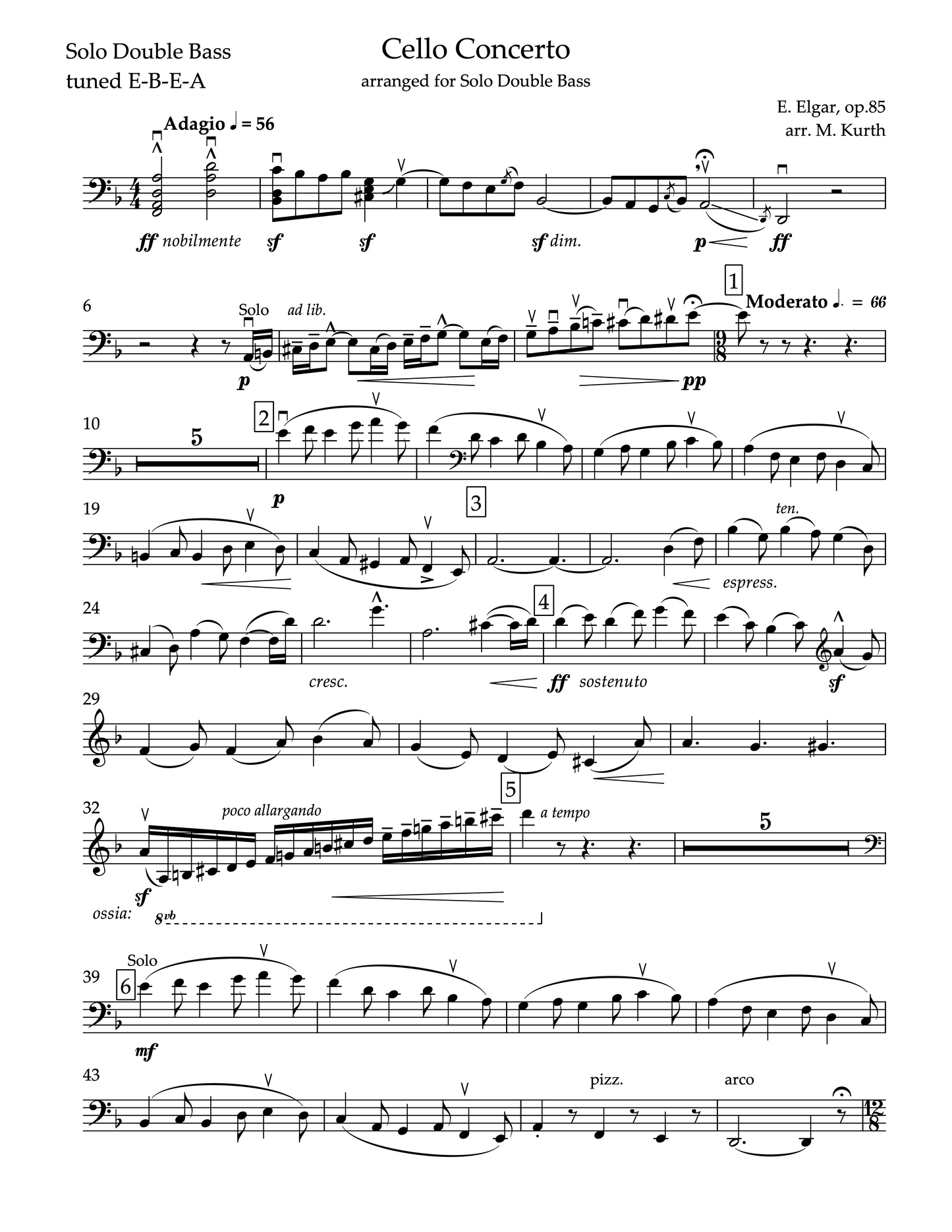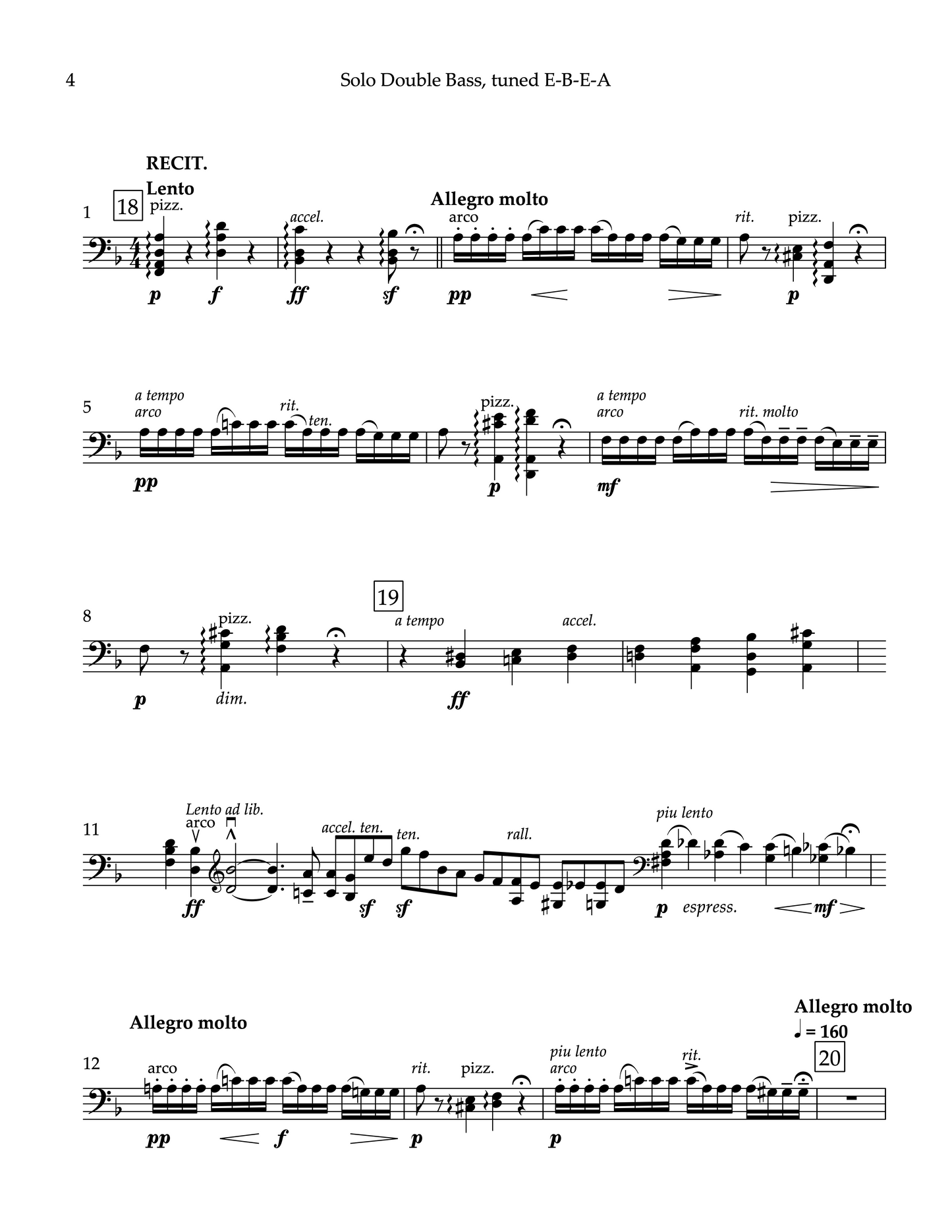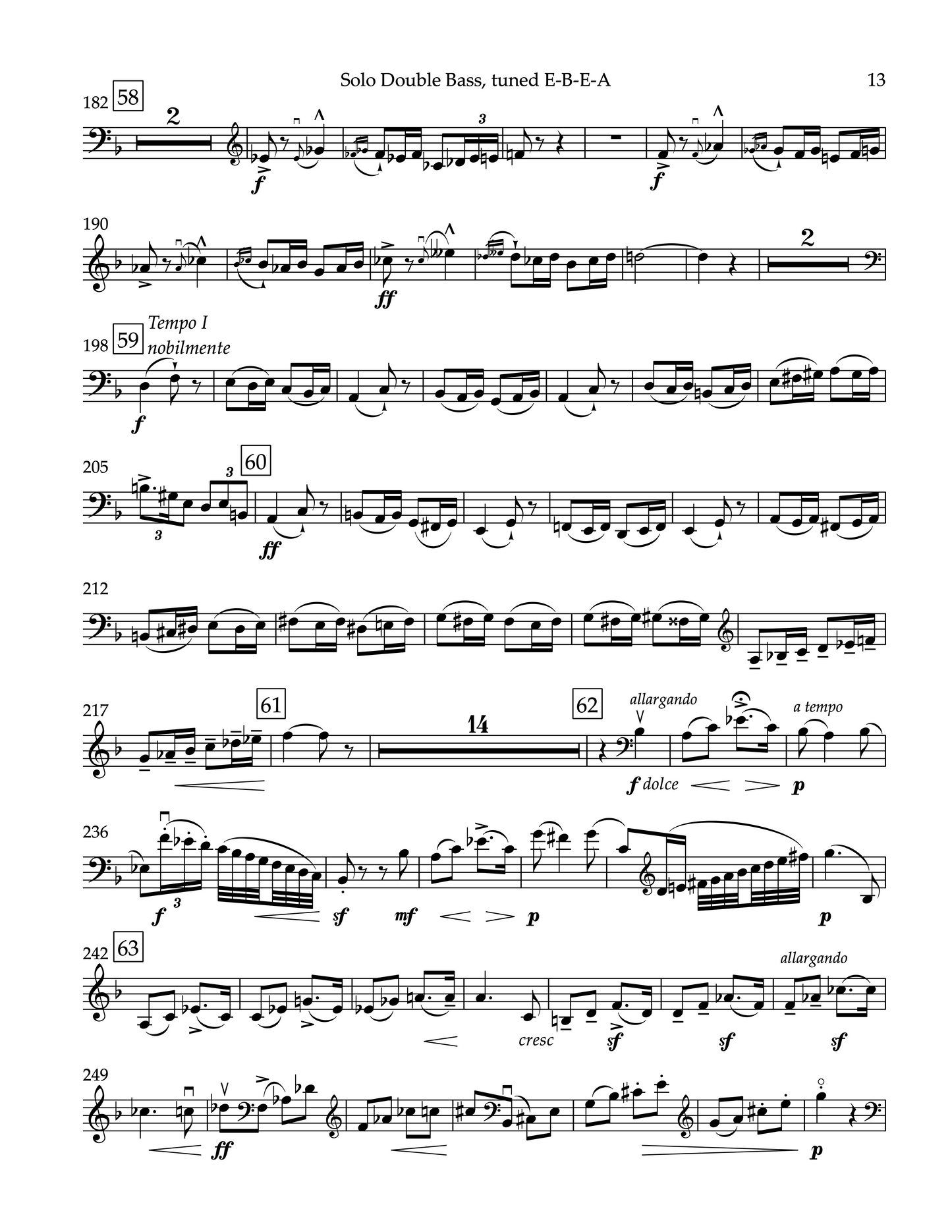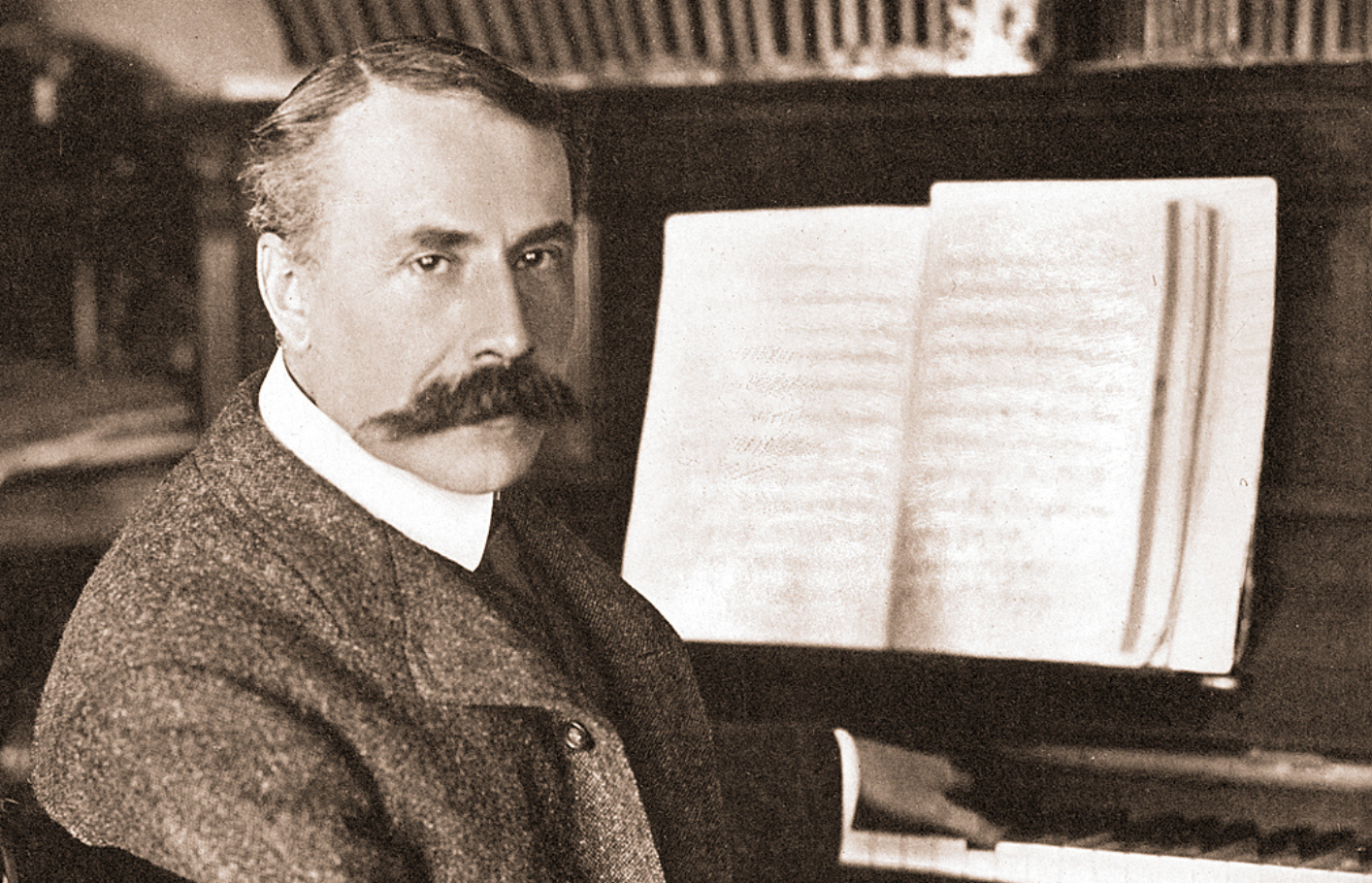Michael Kurth
Edward Elgar: Cello Concerto in E minor, Op. 85 (arr. Michael Kurth for double bass)
Edward Elgar: Cello Concerto in E minor, Op. 85 (arr. Michael Kurth for double bass)
Couldn't load pickup availability
About the Arrangement
Okay, who's ready to get all up in cellists' bidness and freak them out? They're getting used to us stealing their cello suites, their baroque sonatas, and their girlfriends. And boyfriends. And lunch money. But they didn't see this one coming...
YEAH, BUDDY, THE FREAKIN ELGAR CONCERTO!!!
The complete solo part, rendered playable for the mighty double bass, with all idiomatic passages bassified, contrapated, thundercatted. A few fingerings suggested, but this edition makes so much sense right out of the box, you really won't need them.
The only catch: you have to tune E-B-E-A (solo tuning with your extension opened to D, or your F# dropped a whole step.)
(Just make sure, if you're de-tuned, you transpose anything on your low string a whole step up. There are only a few spots like that, and they're pretty obvious.)
Just the latest noble act of repertoire reassignment in the name of bassists everywhere.
This edition only includes the double bass part. The piano accompaniment is available for free download here.
About the Concerto
The concerto had a disastrous premiere, at the opening concert of the London Symphony Orchestra's 1919–20 season on 27 October 1919. Apart from the concerto, which the composer conducted, the rest of the program was conducted by Albert Coates, who overran his rehearsal time at the expense of Elgar's. Lady Elgar wrote, "that brutal selfish ill-mannered bounder ... that brute Coates went on rehearsing." The critic of The Observer, Ernest Newman, wrote, "There have been rumors about during the week of inadequate rehearsal. Whatever the explanation, the sad fact remains that never, in all probability, has so great an orchestra made so lamentable an exhibition of itself. ... The work itself is lovely stuff, very simple – that pregnant simplicity that has come upon Elgar's music in the last couple of years – but with a profound wisdom and beauty underlying its simplicity."
About the Arranger
Michael Kurth thinks most artist biographies are pretentious and boring, and feels a welcome sense of liberation, not to mention mischief, when writing about himself in the third person. He further believes that all artist biographies should include whether the artist prefers cats or dogs, or is ambivalent. He allows that there is room for ambivalence on this issue.
Kurth prefers dogs.
He also enjoys shrimp burritos, dive bars, road trips, thrift stores, found art, shiny pants, folk plumbing, collecting odd musical instruments, neologism, and bourbon.
Kurth was born in 1971 in Virginia and grew up near Baltimore. He started playing the bass in fourth grade, went to public schools, and got his Bachelor’s Degree at Peabody Conservatory, where he studied bass with Harold Robinson. He also studied cello and viola at Peabody, and did okay at cello, but his ham-fisted viola playing caused his roommate Rick to forbid him from ever practicing it in their dorm room.
He once stole one of those convex security mirrors, just to savor the irony, but he feels a lingering sense of guilt, even though it was laying in a pile of stuff that was probably destined for the dumpster anyway. But still.
Kurth has been a member of the Atlanta Symphony bass section since 1994.
The ASO has commissioned and premiered many of his orchestral and choral works. A recording on the ASO Media label is scheduled for commercial release on CD and digital platforms in February 2019, including Everything Lasts Forever, A Thousand Words, May Cause Dizziness, and Miserere featuring Grammy Award-winning mezzo-soprano Kelley O’Connor.
He frequently collaborates with Atlanta poet Jesse Breite on vocal works, including Miserere, Tenebrae, and Magnificat.
He was named “Best New Composer” by Atlanta Magazine in 2017.
He has been awarded Artist-in-Residence fellowships from the Hermitage and Serenbe.
Many Atlanta-area artists have commissioned and performed his works, including the Atlanta Symphony Orchestra Chorus and Chamber Chorus, the Atlanta Chamber Players, the Atlanta Young Singers, the Gwinnett Young Singers, the Morehouse College Glee Club, the Peachtree String Quartet, the Franklin Pond String Quartet, the Atlanta Contemporary Ensemble, Concert Artist Guild Award-winning violist Jennifer Stumm, the Georgia Sinfonia, the Atlanta Community Symphony Orchestra, the DeKalb Symphony, the Georgia State University Wind Ensemble, and movement artists gloATL.
He teaches bass at Emory University.









